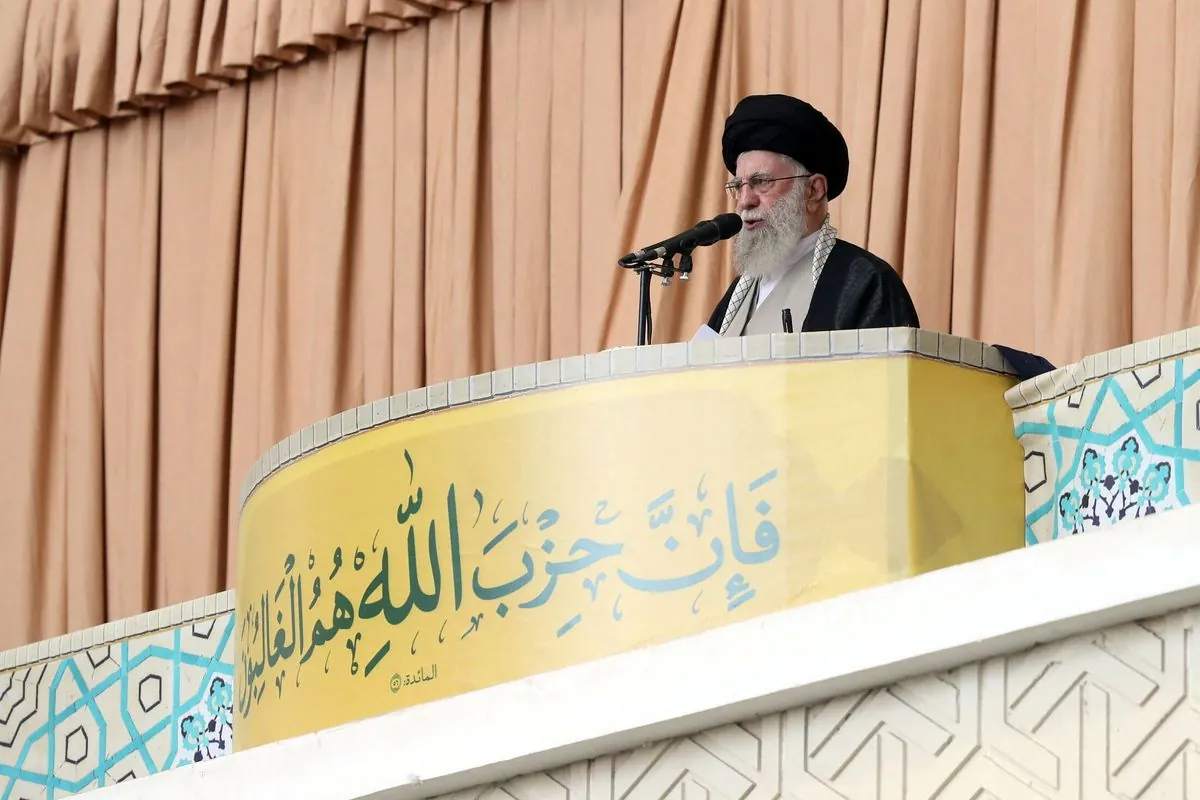In a rare public appearance, Ayatollah Ali Khamenei, Iran's supreme leader since 1989, delivered a defiant sermon during Friday prayers in Tehran. This event, reminiscent of his last such address in January 2020 following the death of General Qasem Soleimani, came amidst escalating tensions in the Middle East.
Khamenei urged unity among Islamic nations, stating, "We must tighten the belt of defense, independence and dignity from Afghanistan to Yemen and from Iran to Gaza and Lebanon, in all Islamic countries." This call for solidarity coincided with Iran's foreign minister's visit to Beirut, demonstrating support for Lebanon amid intensifying Israeli military operations.
The conflict has seen a significant escalation, with Israel expanding its operations beyond its initial focus on Hezbollah, the Shia Islamist political party and militant group founded in 1985. Israeli forces have issued evacuation orders for numerous Lebanese villages, including areas around the ancient city of Tyre, located just 12 miles from the Israeli border.
Lebanon's health ministry reports that Israeli strikes have resulted in at least 1,400 casualties over the past two weeks. The attacks have led to the displacement of over 1.2 million people, with more than two-thirds of the 931 available shelters already at capacity.
Mona Fawaz, a professor at the American University of Beirut, one of the oldest universities in the Middle East, expressed concerns about Israel's strategy: "Israel is trying to play again the same Lebanese playbook — to divide people — and that's what it did throughout its years of occupation of southern Lebanon."
In response to the Israeli offensive, Hezbollah has intensified its rocket attacks on northern Israel. The Israel Defense Forces (IDF), established in 1948, reported over 100 projectiles launched into Israeli territory on Friday alone.
The conflict has also spilled into the West Bank, under Israeli occupation since 1967. An Israeli airstrike on a refugee camp near Tulkarm resulted in at least 18 Palestinian fatalities, including women and children. This incident marks the highest death toll in a single attack in the region in over 24 years.
"It was a barbaric act that left significant destruction in the crowded refugee camp."
The ongoing violence has claimed the lives of more than 700 Palestinians and about 24 Israelis in the West Bank since October 7, 2023, according to UN reports.
As the situation continues to deteriorate, diplomatic efforts to de-escalate the conflict face significant challenges. The international community watches closely as the region grapples with this latest surge in violence, its historical roots tracing back to decades of unresolved conflicts and geopolitical tensions.
